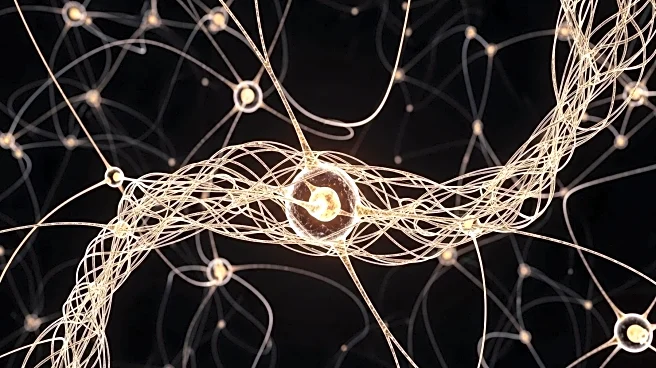What's Happening?
A recent study conducted by researchers at UCLA and Dartmouth has revealed that individuals whose brains react similarly to audiovisual stimuli are more likely to form lasting friendships. The study involved 41 MBA students who watched various movie clips while undergoing fMRI scans. The researchers tracked the students' social networks over eight months and found that those with similar neural responses were more likely to become friends and maintain close relationships. This suggests that friendships may be rooted in shared ways of perceiving and interpreting the world, rather than just common interests or backgrounds.
Why It's Important?
The findings of this study could have significant implications for understanding social dynamics and relationship building. By highlighting the role of neural compatibility in forming friendships, the research suggests that deeper, more enduring connections may be based on how individuals process and respond to their environment. This could influence approaches in social networking, team building, and even educational settings, where fostering environments that encourage shared experiences might lead to stronger interpersonal bonds. Additionally, it challenges traditional notions of friendship formation based solely on shared interests or demographics.









